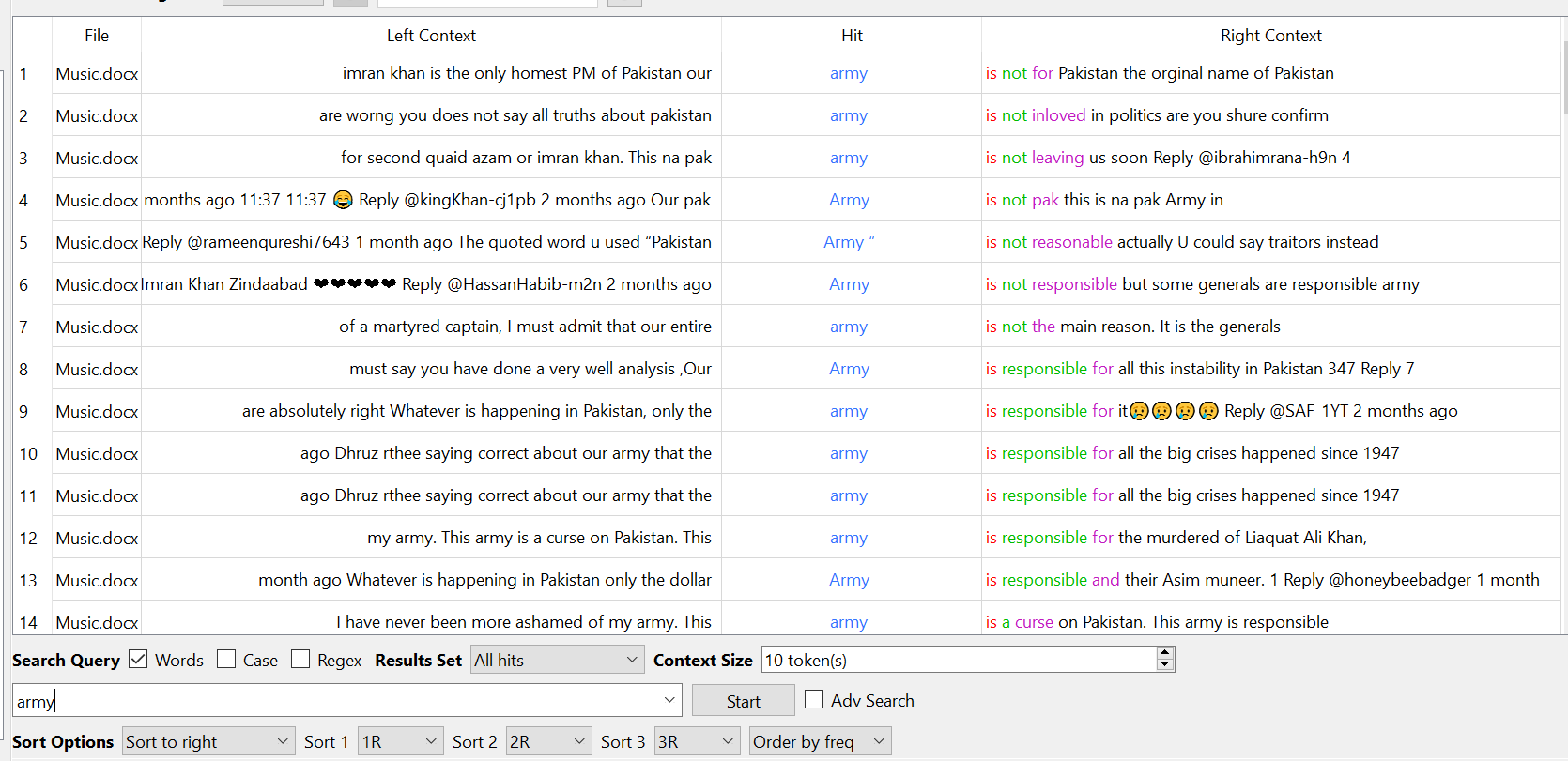A CORPUS-ASSISTED SOCIO-COGNITIVE ANALYSIS OF POLITICAL BIAS ON YOUTUBE AND FACEBOOK
DOI:
https://doi.org/10.71146/kjmr238Keywords:
Political bias, corpus-assisted analysis, socio-cognitive theory, ideological framing, AntConc, political polarization, online discourseAbstract
This study aims to explore the linguistic markers of political bias in YouTube comment sections and Facebook posts through a corpus-assisted socio-cognitive analysis. In an era where social media platforms like YouTube and Facebook significantly shape public discourse, the study seeks to uncover the subtle ways political biases are encoded in online conversations. The primary objectives are to identify and categorize the linguistic markers of political bias and to analyze them through the framework of social cognitive theory. A specialized corpus, consisting of comments from 10 politically diverse YouTube videos, and posts from 4 facebook groups was compiled and processed using AntConc software. By applying van Dijk's Socio Cognitive Theory, the research investigates how language in comment sections and posts reflects and reinforces political ideologies, cognitive biases, and group identities. The analysis reveals distinct patterns of ideological framing, polarizing language, and strategic discourse that shape political perceptions and align users with particular ideological stances. These findings underscore the power of online discourse in influencing political thought and identity construction. The study facilitates a deeper view of the intersection between language, social media, and political polarization, suggesting avenues for research in future on the impact of digital platforms on democratic processes and public opinion.
Downloads

Downloads
Published
Issue
Section
License
Copyright (c) 2025 Sana Tafseer, Dr. Jabir Hussain , Hunza Arshad , Dr. Jahanzeb Jahan (Author)

This work is licensed under a Creative Commons Attribution 4.0 International License.






